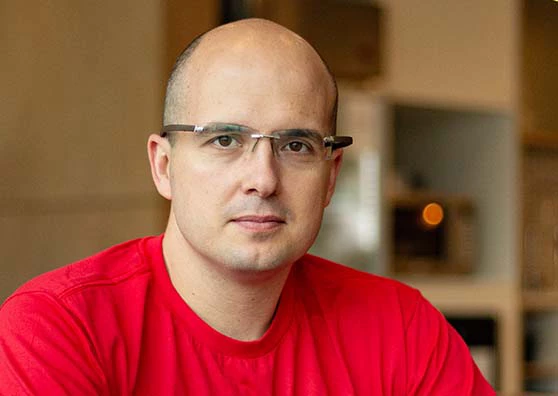
“We see a trend where candidates continually have to upskill and acquire new knowledge on different fronts.”
Interview with Lucas Mendes, Co-Founder of Revelo, Brazil-based online job recruitment marketplace
Job recruiters in emerging markets increasingly are using online channels to attract and identify candidates. In Brazil, where online recruitment tools have not been used widely, their growing popularity is offering new opportunities for jobseekers and businesses alike, according to Revelo, a start-up B2B digital recruitment platform. Revelo’s co-founder, Lucas Mendes, explained how his firm uses artificial intelligence to make recruiting more efficient and how both job candidates and hiring companies benefit.
What inspired you to go into the online recruitment business?
I used to be a partner in an e-commerce company that sold beauty products in Brazil. Although it was a great business, I didn’t feel fulfilled. I am an engineer by training, so I love solving problems. When I was looking for a new opportunity, one thing that stood out was how much of the recruiting business in emerging economies is still offline. For a country like Brazil, which is so highly connected with social media use and mobile penetration, it’s crazy that only one in every twenty jobs—five percent—gets filled through online channels. I thought, here is a problem that actually needs solving. Because if you can make recruiting better, you make companies more efficient, you enable people to work at things they love—and you move the needle of economic indicators of a country significantly.
How are you using artificial intelligence to make it less costly and time-consuming for companies to find the workers they want?
We use artificial intelligence to track different types of information that tell us about the interaction between companies and talent. We learn which companies viewed which profiles, which candidates were invited for interview, who showed up for interview, what feedback was given to the candidate, salary negotiation etc. We then use this data to make the experience better for candidates. For example, if we see that candidates that completed a certain course or worked at a certain company tend to do well at interviews with a specific cluster of companies, we prioritize that matching.
How do you differ from other online recruiting platforms?
We are not like LinkedIn, which has a large database of candidates who might not be looking for jobs at a given point in time. We pride ourselves in offering companies highly-curated shortlists of candidates who are highly responsive, using artificial intelligence to gauge the engagement of candidates in our pool.
Did you develop your own software?
Yes, all the technology we use was developed in-house. We had to. No one was monitoring all the steps in the recruiting process and then using that data for recruiting purposes. We have created a full stack marketplace, meaning that all the interactions happen on the platform.
How do you measure the success of your solution?
One metric we use to gauge success is the share of ‘wallet’ we get from the companies. It gives me great satisfaction when I see companies in traditional sectors like mining, metals, or traditional banking moving more of their recruiting budget from offline to online solutions.
How readily are employers embracing online recruitment?
While offline recruitment is still the dominant model, we are going in the right direction. A lot will depend on our ability to develop new online products. For example, if you’re hiring very senior professionals, it’s hard to do so using exclusively online recruiting with the current offerings out there. But if we can bring to market some of the features we’re working on right now, that might be possible.
With ever more Brazilians getting some form of college education, how well are graduates’ qualifications matching up with what employers want?
This is a great question because the skills match doesn’t actually correlate to the quality of the institution. Even if you graduate from a very high-quality higher education institution in Brazil, you might still not be equipped with the skills necessary to enter the job market. A lot of Brazilian higher education is geared toward academic knowledge that isn’t necessarily applicable to the job market. Because of this, we see a trend where candidates continually have to upskill and acquire new knowledge on different fronts—technology, finance, design, marketing, new ways of working like agile methodology. Our data can put a number on the value of acquiring a skill. We can calculate what acquiring a new skill will do for a candidate’s chance of being hired or for their expected salary.
What are your expansion plans?
We closed an investment round last August [IFC was a co-investor, providing $5 million equity]. We are investing a lot in our tech products and data. The team has grown from 60 to 160 people in six months. The new recruits are focused on creating products that leverage the data we have on the marketplace. One product, for example, focuses on upskilling diagnosis. We have another team focused on developing financial products to enable us extend loans to candidates we know have a high likelihood of being hired. These loans help them afford short-term online courses and upskilling bootcamps. Our first cohort of candidates graduated in December and we hope to have data on their employability very soon. Beyond that, we hope to expand to other Latin American cities, particularly in Mexico, in 2020 and 2021.
Published in January 2020
Lucas Mendes is a co-founder of Revelo, a Sao Paolo-based B2B digital recruitment platform focused on the growing recruiting market of Latin America. Revelo closed a $15 million Series B equity investment round last August led by IFC’s disruptive technologies/venture capital team in collaboration with the IFC education team. Click here for more info on IFC Disruptive Technologies investment in the EdTech space.